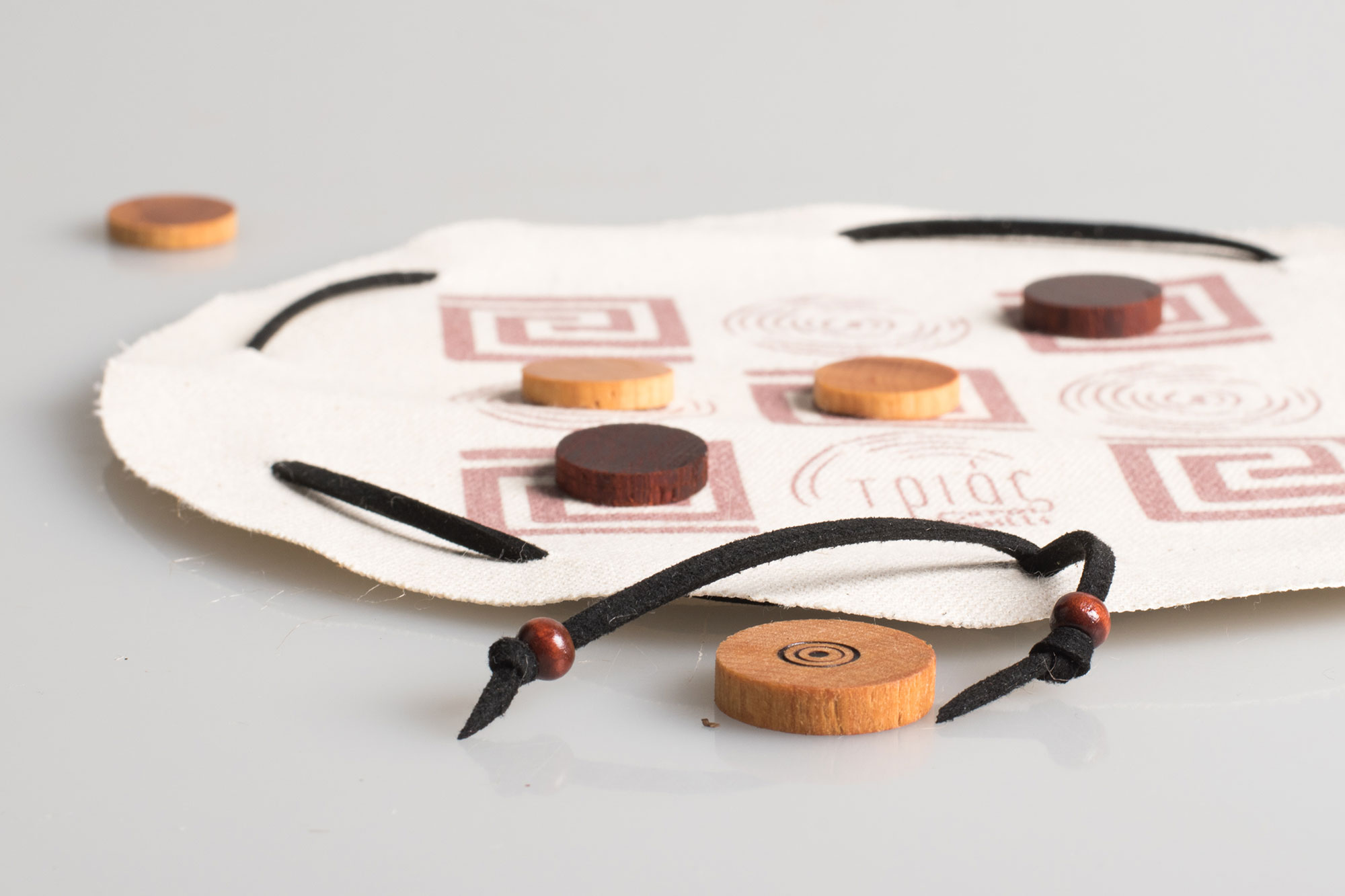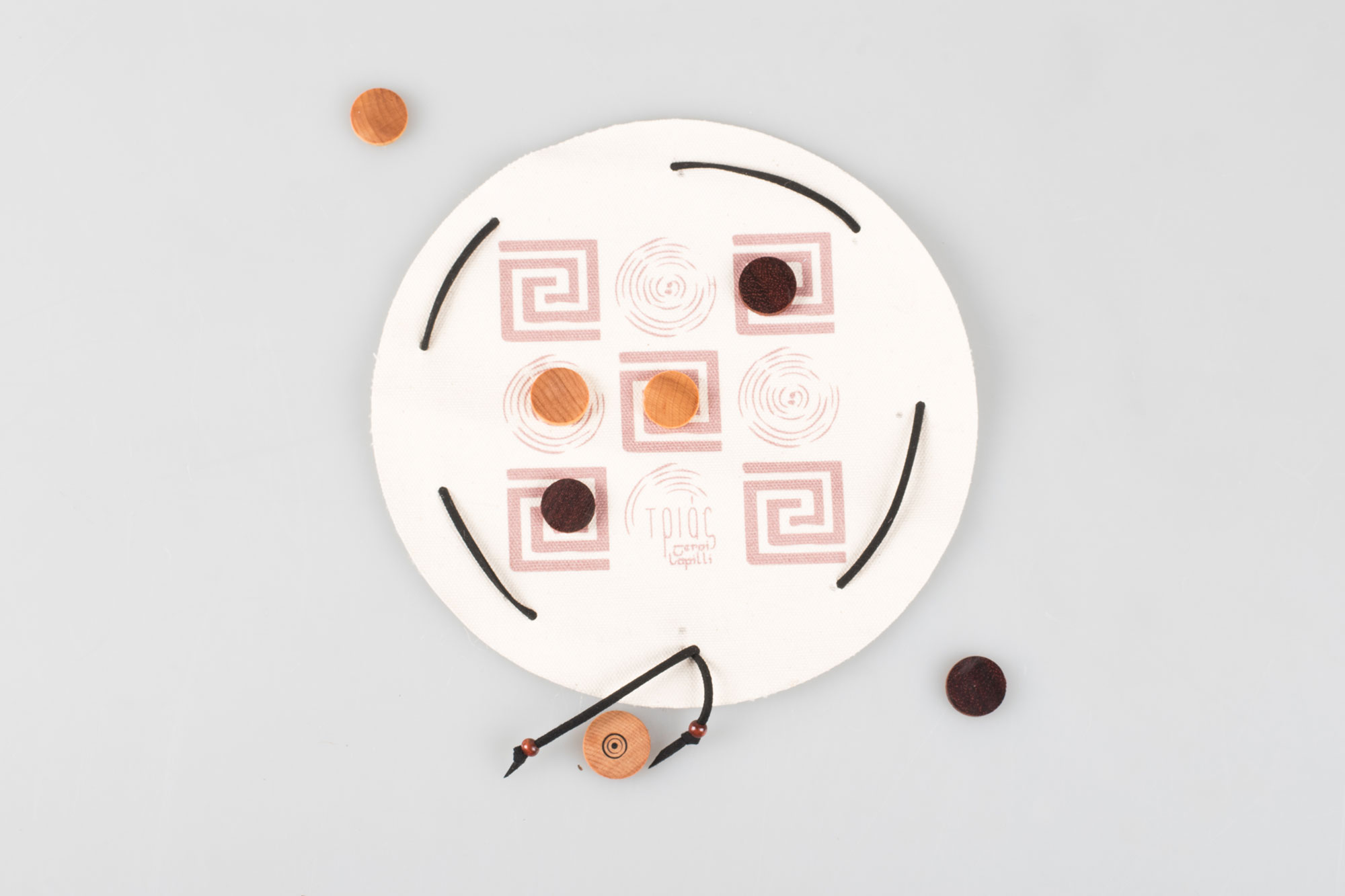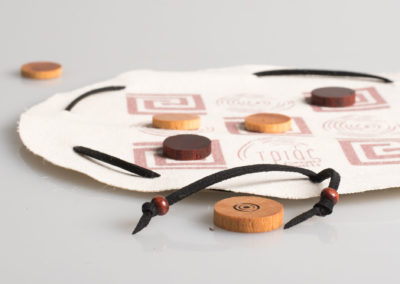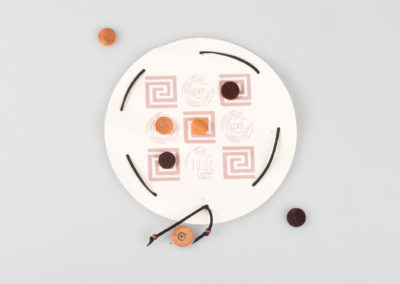Trias of Ostia Antica
$18,75
«War is the father and king of all.» – Heraclitus
Trias of Ostia Antica (Terni lapilli in Latin) was one of the first boardgames that the Greek youngsters were practicing upon, as it is considered to be among the simplest of all the strategy games of the ancient world. In its simplicity, though, is where the secret of the superior strategic thinking of the ancient Greeks is truly hidden. This is probably why the Romans embraced the game, changing its name to Terni Lapilli, and helped it to survive to this day.
Trias can be found engraved in a series of archaeological sites around the world, such as the Great Propylea at the Sanctuary of Eleusis (Greece), on a tombstone in the cemetery of Saint-Irénée in Lyon, et cetera. Among the most impressive remainings of Trias were unearthed in the Trajan’s School, at Ostia Antica, along with the Basilica Julia at Roman Forum.
award-winning board games to sharpen your mind
originated in ancient Greece
Historic Accuracy & Production Value

No matter if you were the offspring of a eupatrid (member of the nobility of ancient Athens, or the child of a farmer, the Greeks had the opportunity to stand out for their ability to win "battles" and lead. In this endeavor, strategic thinking was the most valuable asset.
This is why ancient Greeks designed a series of highly educational board games, through which the youngsters sharpened their minds and developed critical thinking. It is no coincidence that Lysimachus, tutor of Alexander the Great, devised a game for the latter to practice. He was encouraged to play the role of Achilles, and the latter gradually became an archetypal figure (that of the "noble warrior") in the youthful mind of Alexander the Great. What Alexander the Great did next is well-known all over the world.
Selected Bibliography
Brouwers, Josho (2020). Ancient Greek heroes at play, Ancient World Magazine.
Kowalski, Wladyslaw. (2004). Board Games of the Ancient World. P Art and Culture. Autumn. 2-25.
Kurke, L. (1999). Ancient Greek Board Games and How to Play Them. Classical Philology, 94(3), 247-267.
Metcalfe, Tom (2018). 16 of the Most Interesting Ancient Board and Dice Games, Live Science.
Schädler, Ulrich. (2009). Pente grammai -- the ancient Greek board game Five Lines.
Woods, Stewart (2012). Eurogames: The Design, Culture, and Play of Modern European Board Games. p. 17. ISBN 9780786490653.
Λάζος, Χρήστος Δ. (2002). Παίζοντας στο χρόνο: αρχαιοελληνικά και βυζαντινά παιχνίδια 1700 π.Χ.-1500 μ.Χ., Εκδόσεις Αίολος.
Plato. The Republic, written around 375 B.C.
our ancient board games at a glance
Historic accuracy
Game rules
Includes
100% positive reviews
Eye for Detail
Shipping worldwide
Ready to own a piece of ancient wisdom?
Trias of Ostia Antica
$18,75









